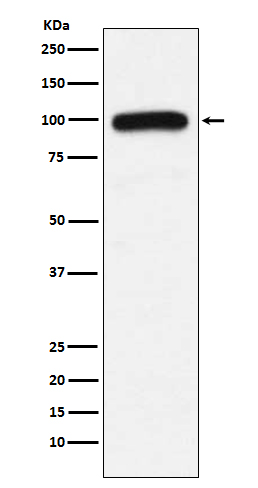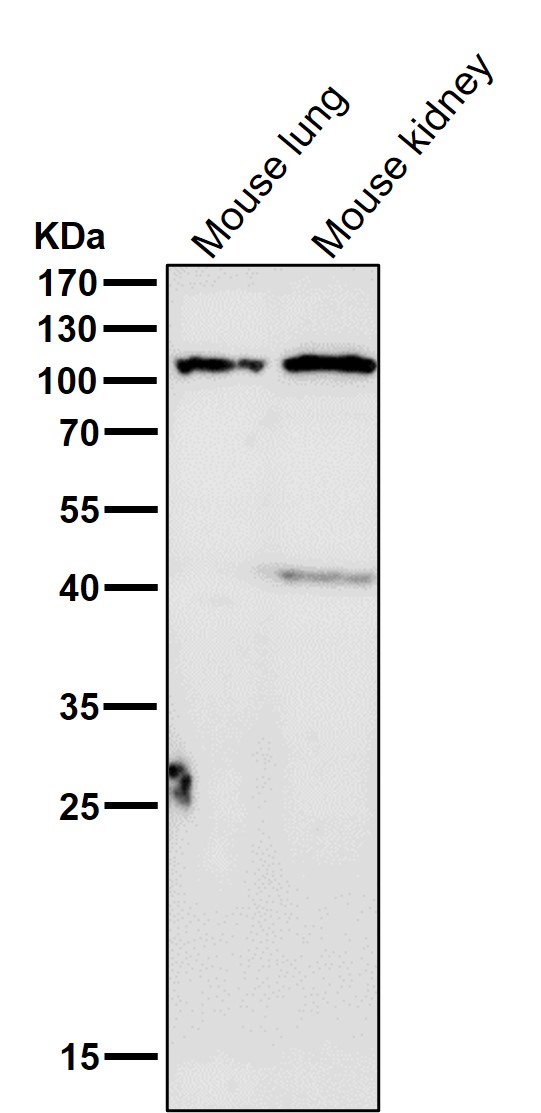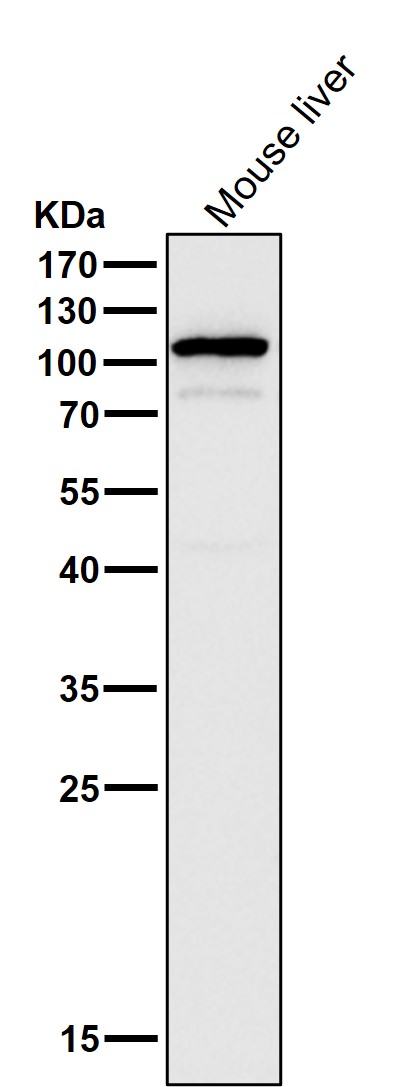


| WB | 咨询技术 | Human,Mouse,Rat |
| IF | 咨询技术 | Human,Mouse,Rat |
| IHC | 咨询技术 | Human,Mouse,Rat |
| ICC | 技术咨询 | Human,Mouse,Rat |
| FCM | 咨询技术 | Human,Mouse,Rat |
| Elisa | 咨询技术 | Human,Mouse,Rat |
| Aliases | Ubiquitin-protein ligase E3A; UBE3A; E6AP; EPVE6AP; HPVE6A;;UBE3A |
| WB Predicted band size | Calculated MW: 101 kDa ; Observed MW: 100 kDa |
| Host/Isotype | Rabbit IgG |
| Antibody Type | Primary antibody |
| Storage | Store at 4°C short term. Aliquot and store at -20°C long term. Avoid freeze/thaw cycles. |
| Species Reactivity | Human,Mouse,Rat |
| Immunogen | A synthesized peptide derived from human UBE3A |
| Formulation | Purified antibody in PBS with 0.05% sodium azide,0.05% BSA and 50% glycerol. |
+ +
以下是3篇关于UBE3A抗体的代表性文献(信息基于公开知识,具体引用请核实原文):
1. **文献名称**:*Tissue-specific expression of UBE3A isoforms is regulated by DNA methylation in human and mouse*
**作者**:Dindot, S.V. et al.
**摘要**:该研究通过Western blot和免疫组化技术,使用UBE3A特异性抗体分析了UBE3A蛋白在人和小鼠不同组织中的表达差异,发现其表达受DNA甲基化调控,并与神经发育相关。
2. **文献名称**:*UBE3A regulates synaptic plasticity and learning and memory by controlling SK2 channel endocytosis*
**作者**:Huang, H.S. et al.
**摘要**:研究利用UBE3A抗体在小鼠脑组织中进行免疫沉淀和免疫荧光实验,揭示了UBE3A通过调控SK2离子通道内吞作用影响突触可塑性及学习记忆功能的分子机制。
3. **文献名称**:*Topoisomerase 1 inhibition reversibly impairs synaptic function in a mouse model of Angelman syndrome*
**作者**:Mabb, A.M. et al.
**摘要**:通过UBE3A抗体进行蛋白定量和定位分析,发现拓扑异构酶抑制剂可短暂恢复UBE3A缺失小鼠模型的突触功能,为天使综合征治疗提供新思路。
4. **文献名称**:*Dual-isoform expression of UBE3A continues to repress sociability and seizure thresholds in Angelman syndrome mice*
**作者**:Judson, M.C. et al.
**摘要**:利用UBE3A抗体进行脑区特异性蛋白检测,证明UBE3A不同异构体在天使综合征小鼠模型中的协同作用,及其对社交行为和癫痫阈值的影响。
(注:以上文献标题和结论为示例性概括,实际引用建议通过PubMed或学术数据库核对原文信息。)
×